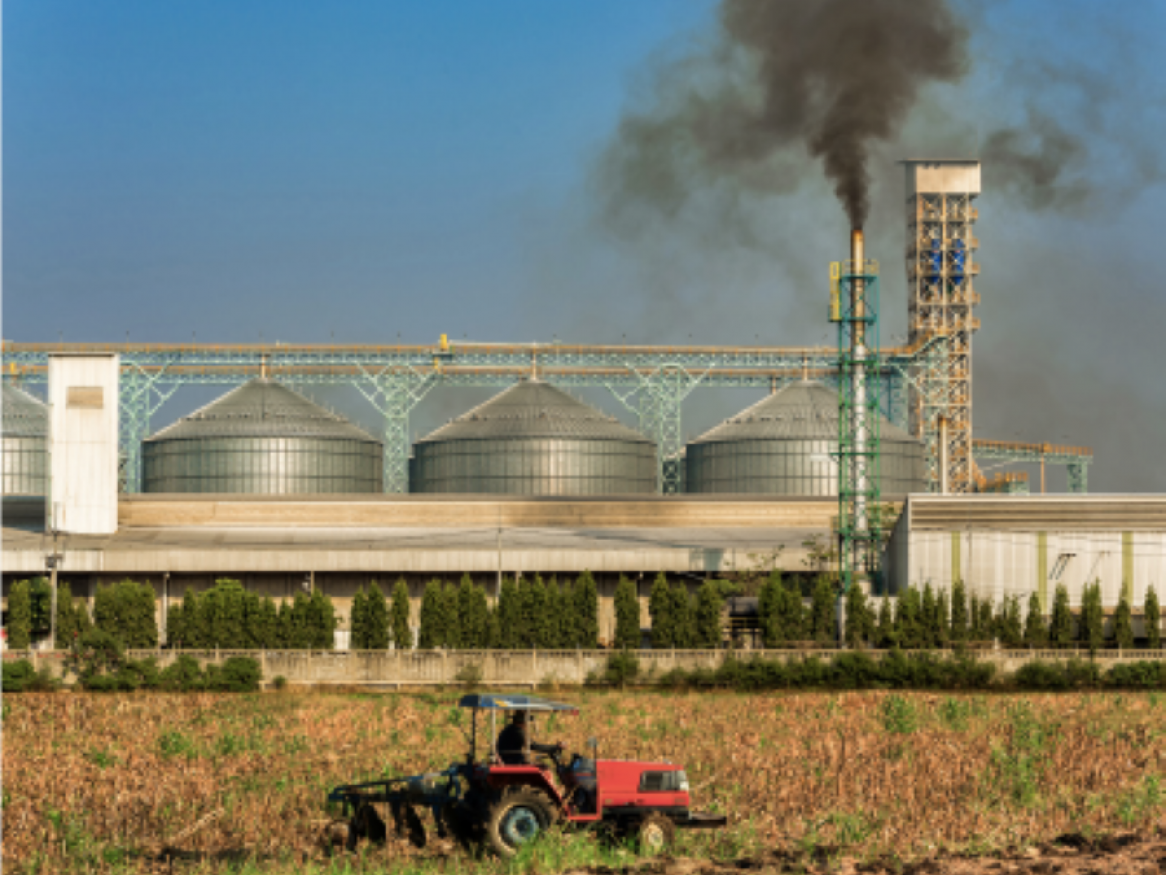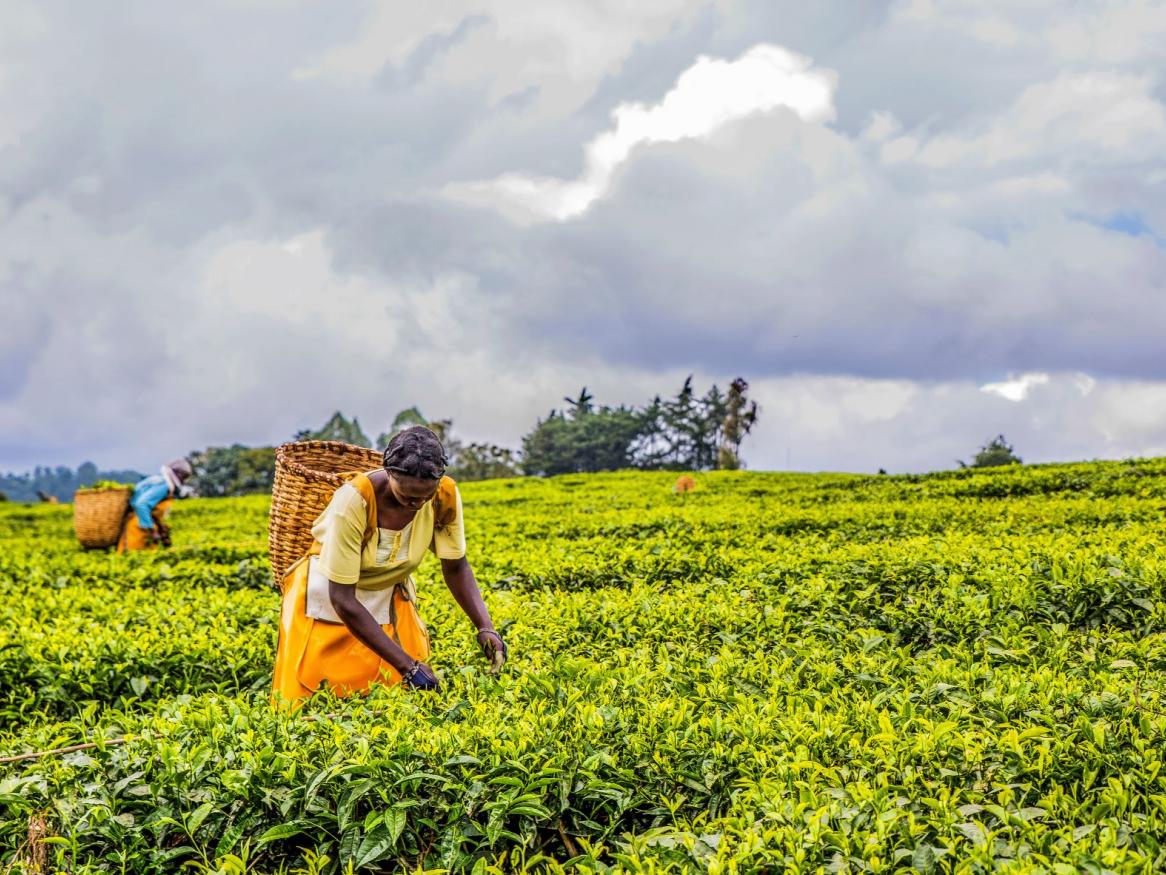News from the Institute for International Trade
Search news stories
Enter a keyword to search news.
Carbon Tax Creep Beyond Industrial Goods: Challenges and Risks for Extending Coverage to Agriculture

Tim Ryan is completing a Masters in International Trade and Development at the University of Adelaide, and is Manager of Global Trade Development at Meat & Livestock Australia.
Governments around the world are implementing emissions reduction policies to mitigate the impact of global warming, however the application of climate policies will occur at different speeds and depth due to varying levels of development and degrees of ambition. There are inherent dangers from unilateral expansion of carbon tax regimes, not least protectionism, hence this brief argue for a cautious and multilateral approach to carbon taxation.
All told, Australian sanctions will have almost zero consequences for Russia

Naoise McDonagh, Lecturer in Political Economy at the Institute for International Trade
Will Australia’s sanctions hurt Russia? This article outlines why #Australian sanctions are symbolic only, by discussing the conditions under which sanctions can be effective and explaining why such conditions do not exist in the Australia-Russia economic relationship. Other countries, such as the US, UK and EU, who do have conditions for effective sanctioning power against Russia, must make complex calculations to maximise deterrent power while minimizing as far as possible costs for them.
[Read more about All told, Australian sanctions will have almost zero consequences for Russia]
The EU Digital Market Regulations: Rule-Maker or Deal-Breaker?

Hildegunn Kyvik Nordås, Magnus Lodefalk and Joakim Wernberg
Digital transformation of the economy and society gives rise to a need for updated regulations and rules of the game for the digitised market. Within the EU, this need is reflected in a number of legislative initiatives, most recently the Digital Markets Act (DMA), the Digital Services Act (DSA) and the Artificial Intelligence Act. This work affects not only the European market but also international trade relations that extend beyond the EU's borders. The EU is also part of the Joint Initiative (JI) on E-Commerce which was launched at the 11th WTO Ministerial in 2017 and aims at setting the global rules for digital markets.
[Read more about The EU Digital Market Regulations: Rule-Maker or Deal-Breaker?]
Strengthening African Agricultural Trade: The Case For Domestic Support Entitlement Reforms

Reform of domestic agriculture support in the form of financial subsidies has long been a vexed issue. One relatively promising area for reform is to address WTO members’ entitlements to deploy domestic support, rather than aiming to cut actual expenditures per se. Specifically, reducing entitlements would diminish members’ rights to increase domestic support payments in future. Such reductions are best targeted at those subsidies that distort trading partners’ production and trade incentives, rather than at subsidies generally regarded as either relatively benign, or minimally distorting to support domestic farmers and the agricultural economy. Read our latest working paper on this important issue.
Taking a Step Towards Modernizing Agriculture Trade Policy

Ken Ash, Independent Consultant, IIT Visiting Fellow, and former OECD Director of Trade and Agriculture.
Carmel Cahill, Independent Consultant and former OECD Deputy Director of Trade and Agriculture.
Twenty-eight years after agriculture was brought into the rules-based multilateral trading system global production remains significantly distorted by policy support. Unless WTO members put away their well-worn talking points and adopt a fresh approach to modernizing the rules for agriculture trade, the future risks looking much like the past.
[Read more about Taking a Step Towards Modernizing Agriculture Trade Policy]
The EU’s ‘Chips Act’: A Rent-Seekers Paradise or a Feasible Industrial Policy?

Andreas Freytag, Professor and Chair of Economic Policy, Friedrich Schiller University, Jena and Visiting Professor with IIT.
Microchip shortages are high on the agenda of governments and businesses feeling the pinch of ongoing supply shortages. Not least for this reason, there is a broad political consensus in Europe that strong support is needed for the European chip industry in order to be independent of Asian manufacturers in the future.
[Read more about The EU’s ‘Chips Act’: A Rent-Seekers Paradise or a Feasible Industrial Policy?]
Improving Border Adjustment Mechanisms

Professor Mike Young, Institute for International Trade, The University of Adelaide. The European Union (EU) and a number of other countries including the USA, Canada, Malaysia and Japan are in the process of considering how best to prevent the flow of jobs and investment to countries that are making slower progress in the reduction of greenhouse gas emissions.
This work is licensed under Commons Attribution-NonCommercial-NoDerivatives 4.0 International License.
IIT is a global leader in researching, analysing and commenting on International Trade.
Stay informed about our up-and-coming seminars, events, publications, awards, new projects and collaborations, and other exciting news.
